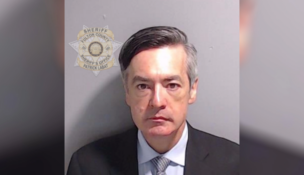More heat than light in AG race flap
By: Bill Lueders, Wisconsin Center for Investigative Journalism//July 11, 2014//
More heat than light in AG race flap
By: Bill Lueders, Wisconsin Center for Investigative Journalism//July 11, 2014//

Brad Schimel, the lone Republican candidate for state attorney general, ignited a firestorm early this year with his response to a letter alleging pay-to-play politics.
“What law do you believe has been violated?” asked Schimel, the district attorney of Waukesha County, in an email response to One Wisconsin Now. The liberal advocacy group had urged him to investigate a state lawmaker who introduced a bill that would have helped a wealthy donor.
“Why can’t a legislator press for legislation that benefits a person who has contributed to their campaign?” Schimel’s email continued. “Isn’t that the essence of representative government?”
One Wisconsin Now called Schimel’s response, which it received in January and made public in June (after the race for AG was in full swing), “shocking and disappointing.” Schimel’s remarks were also blasted by the three Democrats vying in the Aug. 12 primary for the right to be his opponent this fall.
“He openly says that there’s nothing wrong with a contributor to a politician asking for special favors,” clucked state Rep. Jon Richards, D-Milwaukee.
“Schimel’s comments suggest that those with power and money will have a greater ability to influence legislation,” charged Jefferson County District Attorney Susan Happ.
Dane County District Attorney Ismael Ozanne chimed in: “Schimel and his Republican friends need to focus on making our communities safer, not protecting their pay-to-play buddies and stripping voters’ access to democracy.”
But beyond the spin, it isn’t clear that Schimel and his Democratic rivals are all that far apart.
The case at hand concerned a donor who was allowed to help draft a bill that would have eased his child support burden. The lawmaker who introduced the bill, state Rep. Joel Kleefisch, R-Oconomowoc, withdrew it after the extent of the donor’s involvement came to light.
Schimel, in his email, asserted that “politicians should not solicit financial support in exchange for taking specific actions.” He adds in an interview that he has no reason to believe this occurred; his request to One Wisconsin Now for additional evidence went unanswered.
“There was nothing that suggested there was any kind of pay to play,” Schimel says. “Why is it wrong for a citizen who believes they have been wronged by a law to lobby a legislator, just as all sorts of special interests do?”
The three Democrats, in separate interviews, agree that Schimel should have done more to investigate. “It might be criminal,” Richards says. “At a minimum, it doesn’t pass the smell test.”
But all three stop well short of asserting that any laws were broken. “There may not be anything,” Ozanne says. An investigation, Happ says, “absolutely” could have concluded that no crime occurred.
In fact, the Democrats and Schimel largely agree on what conduct is against the law — money for favors, quid pro quo. The only dispute is whether Schimel looked hard enough.
All four candidates say the attorney general can play an important role on issues of campaign finance and public integrity.
“I think it’s unfortunate we’ve seen money so permeate the process,” Happ says. “We’ve got to work toward restoring people’s trust.” Ozanne offers similar statements about the office’s need to protect “the integrity of the system.”
Richards specifically calls for more transparency from independent groups in elections, while acknowledging that recent court rulings have made that more difficult.
Schimel also considers openness an important value but adds, “I don’t know that we can go much further with transparency given how the courts have ruled.” He supports keeping the state’s current per-candidate contribution limits and its ban on corporate contributions.
The three Democrats declined to say, even ballpark, how much they plan to raise and spend. “We don’t want to show our hand,” Happ says. “That will all be reported,” adds Richards.
Schimel is less coy. “I’m hoping to raise and spend between $750,000 and $1 million,” he says, earning points for transparency.
Bill Lueders is the Money and Politics Project director at the Wisconsin Center for Investigative Journalism.
Legal News
- FBI launches criminal investigation into Key Bridge collapse
- Man charged in slaying after woman’s leg found at Milwaukee-area park
- Minnesota man guilty in fatal stabbing of teen on Wisconsin river, jury finds
- Wisconsin teen sentenced in bonfire explosion that burned at least 17
- Wisconsin man who broke into home, ate victim’s chicken, slept in victim’s bed, receives prison and jail sentences
- Judge refuses to dismiss Hunter Biden’s gun case
- House passes reauthorization of key US surveillance program after days of upheaval over changes
- Milwaukee Police officer traveling to Georgia training retires before facing discipline
- Evers to ask legislature to approve largest increase in state support for UW System in two decades
- 7th Circuit Court of Appeals proposes new rules
- Federal agencies allege toxic work environment for women in new report
- Wisconsin man sentenced for sex trafficking a woman and a minor online
WLJ People
- Power 30 Personal Injury Attorneys – Russell Nicolet
- Power 30 Personal Injury Attorneys – Benjamin Nicolet
- Power 30 Personal Injury Attorneys – Dustin T. Woehl
- Power 30 Personal Injury Attorneys – Katherine Metzger
- Power 30 Personal Injury Attorneys – Joseph Ryan
- Power 30 Personal Injury Attorneys – James M. Ryan
- Power 30 Personal Injury Attorneys – Dana Wachs
- Power 30 Personal Injury Attorneys – Mark L. Thomsen
- Power 30 Personal Injury Attorneys – Matthew Lein
- Power 30 Personal Injury Attorneys – Jeffrey A. Pitman
- Power 30 Personal Injury Attorneys – William Pemberton
- Power 30 Personal Injury Attorneys – Howard S. Sicula











